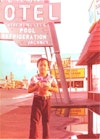Published
May 23, 2024
Harold Kim has a passion for music.
In fact, if you find yourself strolling around the fourth floor of the U.S. Chamber's historic headquarters in Washington, D.C., on a weekday afternoon, you might catch snatches of Metallica drifting through the air. They are likely emanating from Kim’s office.
“Master of Puppets to Beethoven’s Ninth Symphony—that’s me,” says Kim, executive vice president at the U.S. Chamber of Commerce. “I like a lot of different stuff across many different genres.”
Kim’s musical tastes developed early. His father was a conductor and credited with bringing Western-style classical music to Korea. He also studied with the likes of Leonard Bernstein and established the Seoul Philharmonic Orchestra. His mother did traditional Korean dance.
Kim says his life as a first-generation Korean American is an example of what’s possible in a system that’s free and open—and what’s lost when a system isn’t.
Small business ownership: A path to opportunity
When Kim Il Sung invaded South Korea in 1950, the Communists prioritized kidnapping artists and intellectuals. Kim’s father went into hiding in Seoul before he was able to escape further south. Meanwhile, his mother gave up everything and fled the North, leaving family members behind.
They each came to the U.S.—a natural draw for artists who thrive on freedom of thought and expression.
After the war, President Dwight Eisenhower prioritized visas for Korean artists and scientists, so his parents found work here. For a while, they continued their artistic careers in the U.S., eventually setting in Las Vegas.
Once they had a young family to provide for, they determined that small business ownership was their best path to security and opportunity. So, they built a new life and livelihood in America from the ground up, overcoming both language barriers and racial tensions. With the help of a Small Business Administration loan, they bought a motel and pizzeria in an area off the Las Vegas Strip. To make ends meet, Kim’s dad cleaned hotel rooms while his mother made pizzas.

“They eventually parlayed the pizza place into a Korean restaurant where I washed dishes and bussed tables on the weekend,” Kim says. “It was hard. They had failures. There were lean times. Sometimes, it felt just like survival mode. But day in and day out, they demonstrated to me the power of opportunity and the ability to lift yourself up through hard work.”
Kim says he wouldn’t be where he is today without their strong example.
“I had to muster the work ethic I honed washing dishes for all those years to get where I am today,” Kim says. “Most importantly, my parents never took freedom or opportunity for granted—and that is something I have tried to carry with me throughout my life and career.”
“Freedom” and “liberty” aren’t abstract concepts for Kim.
“It’s hard to take those things for granted when you have relatives living in communist North Korea,” Kim says. “Just look at the satellite photo comparisons today of South and North Korea—you’ll see light versus darkness. Freedom versus oppression. Hope versus desperation.”
Defending and protecting free enterprise
When the opportunity came to make the Chamber’s mission of defending, protecting, and advancing economic liberty the center of his work, Kim made sure he was front and center.
“Our entire democratic system and the free enterprise model that underlie it are being questioned at numerous levels that could fundamentally change our belief system as Americans,” Kim says. “It wasn’t that long ago when free trade, de-regulation, and privatization were inherently American, but now these concepts are being questioned across the political spectrum.”
Kim believes that what’s at stake is no less than future U.S. leadership and competitiveness across the world—and unlimited opportunity for America’s next generation.
“The Chamber is leading the business community in getting loud about free enterprise at every conceivable level, and I’m proud to say that I am on the front lines,” Kim says. “In a lot of ways, this is a higher calling to fix the system that has been responsive to the needs of people like my parents. And for me, it’s personal.”
More on Free Enterprise
About the author

Thaddeus Swanek
Thaddeus is a senior writer and editor with the U.S. Chamber of Commerce's strategic communications team.







